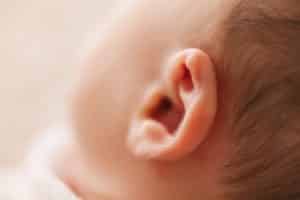Bacterial Meningitis and Deafness
By Sara Baines-Miller | Posted on: June 3, 2020
What is Bacterial Meningitis?
According to the CDC, (Centers for Disease Control and Prevention) Bacterial Meningitis is an extremely serious infection that attacks the Central Nervous System (CNS) and is caused by a certain type of bacteria. While the outcome of recovery for most individuals is high, some people end up with permanent disabilities, like deafness. The type of deafness that can occur from Bacterial Meningitis is Sensorineural Deafness. If Bacterial Meningitis is diagnosed in an individual, immediate treatment is recommended.
Why Does Bacterial Meningitis Cause Deafness?
Bacterial Meningitis attacks the Central Nervous System (CNS) and can cause Sensorineural Deafness, which is damage to the Inner Ear. The ear is comprised of three parts: Outer Ear, Middle Ear and Inner Ear.
The Outer Ear is comprised of the pinna and ear canal. The direction of sound and where it comes from is determined by the pinna. The Middle Ear is comprised of three small bones called ossicles. The ossicles connect the eardrum to the Inner Ear. Different pitches of sound cause the eardrum to move. Once the eardrum hears a sound, the ossicles move and send a sign to the Inner Ear.
The Inner Ear is responsible for an individual’s hearing (cochlea) and balance (semicircular canals). When damage occurs from Bacterial Meningitis, listening to soft sounds can become hard. Listening to louder sounds can become distorted or unclear and also sound muted.
Treatments for Sensorineural Deafness
Most of the time, Sensorineural Deafness is permanent; however, hearing aides or cochlear implants may help the individual hear better.
Resources
If you are concerned about Sensorineural Deafness, contacting an audiologist is a great first step. We’d also love to talk to you! The DePaul School Family supports parents and their newly diagnosed children with hearing loss every step of the way on their listening and speaking journey. Our expert team can help you to navigate all the steps from the first diagnosis through transitioning your child into their neighborhood school. Contact us today to chat with one of our specialists.
Sources
American Speech-Language-Hearing Association, ASHA
Hearing Loss Association of America, HLAA
Centers for Disease Control and Prevention, CDC
Share This Article:

